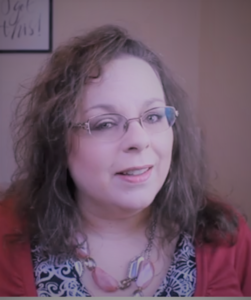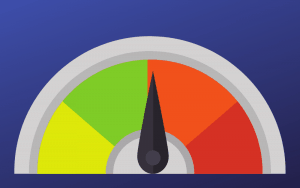Denis O’Brien [0:37]
Welcome to Episode 217 Synthetic Identity Theft. Hey, money clan a very warm welcome to the Chain of Wealth podcast. I’m your host, Denis O’Brien.
Katie Welsh [1:19]
And I’m Katie Welsh.
Denis O’Brien [0:51]
Katie, I was totally disturbed this last week we were chatting to one of our listeners. And they had well, they had a case of synthetic identity fraud.
Katie Welsh [1:2]
I cannot even imagine having to go through this. It sounds like such a nightmare.
Denis O’Brien [1:8]
Kate, you know I don’t get it’s actually such a common thing. And a lot of people don’t know what they should be doing about it, what the repercussions are all that kind of stuff. So in today’s episode, we’re going to go deep.
Katie Welsh [1:19]
Yes. And this was definitely sparked and inspired by her.
Denis O’Brien [1:26]
Yeah, so before we dive into today’s episode, Have you guys been a victim of identity fraud at all? Let us know it’s @chainofwealth on Instagram. And definitely get in touch and let us know if this has happened to you.
Alright, Kate, you ready to dive on in?
Katie Welsh [1:41]
Yep.
Denis O’Brien [1:41]
Fantastic. Let’s do it.
Voice Over [1:44]
Welcome to Chain of Wealth. here’s your host, Denis inspiring you to begin your journey of financial freedom.
Denis O’Brien [1:57]
Alright, Kate. So synthetic identity theft. So synthetic identity theft is a type of fraud in which a criminal combines real and fake information to create this like new identity. And it kind of goes like under the radar for a while because it’s in essence like this fake persona.
Katie Welsh [2:17]
Right? So from what I could understand when I was chatting with her, it seemed as though some things were affected and others were not.
Denis O’Brien [2:28]
Yeah, it’s It’s really really a, a common area that it happens to a lot of people but it’s super unknown about and essentially it allows criminals to steal money from creditors, including credit card companies. And you know, it’s it’s crazy that you know, people will just believe that you say who you well you aren’t who you say you are, and people can actually get away with this.
Katie Welsh [2:51]
You know, it is surprising and it’s terrible that it happens but it’s not as surprising as I originally thought it was because honestly the other day, I left my wallet in my car, which I know you’re not supposed to, but I did. And I used your credit card to go to the grocery store and buy something quickly. And where we live, I could just walk to the grocery store instead of having to go all the way down to my car. And I used your credit card it is like 50 bucks or whatever I spent and no harm no foul, I was able to use Denis O’Brien’s credit card.
Denis O’Brien [3:36]
Yeah, it’s crazy. And, you know, Kate, like a lot of the time, like it goes unnoticed for absolute years as well. And like a lot of the reason for that is, you know, people are essentially establishing this fake new identity. And it typically happens when, you know, like, it could be someone that is an undocument, or an undocumented person that has come to the United States. And they effectively are trying to like establish this identity for themselves, they like piggyback off your social security number. They manage to get hold of like previous addresses, and based on that they can establish almost like these whole lives without you realizing it and then ready to take advantage of you later on.
Katie Welsh [4:17]
That is terrifying. So for anybody who has gone through this or is going through it, what if some advice that you have learned because we were pretty new to this whole topic and then right when we learned about it, we started doing a bunch of research.
Denis O’Brien [4:35]
Well, Kate, the thing is, is that there’s a very big difference between synthetic and traditional identity theft. So with regular identity theft like consumers personal information is typically stolen or sold on the black market without their knowledge and you know, it’s the type of information we spoke about earlier. So its names addresses, dates of birth, social security numbers, previous employers, or even current employers, and they use this identity, typically to open up accounts or make purchases, and you know, sometimes just gain access to accounts and then they can wreak all sorts of havoc. Synthetic identity theft is typically a lot harder to detect. And the reason for that is people believe people typically fly under the radar. And they almost create these fake personas based on real information, well real and fake information. So some of the information will be true. So what will be false. And you know, eventually they end up establishing these almost like personas which they can use to their advantage. And a lot of the time, it goes unnoticed, because the people using the accounts, I’m using air quotes here responsibly, and they like start building up their own credit histories and stuff like that. But yeah, if it happens to you, you better know that it’s going to have a massive impact on your life. And some of the massive things we can think of, you know, is obviously, the money side, you know, and what do you do when people will like, basically steal your identity, it is a massive mission trying to prove that you did not take well you weren’t responsible for certain actions that this fake identity took on your behalf.
Katie Welsh [6:16]
So if this were to happen to me, and I’m panicked, and I don’t know what to do, what are at least a couple of the beginning steps that I can take to start to rectify this?
Denis O’Brien [6:27]
Kate you know, it is a really hard thing to deal with. But I would say if I was in the position, the very first thing I would do is freeze my credit.
Katie Welsh [6:36]
Okay.
Denis O’Brien [6:37]
You know, just to sort of establish, you know, like, I’m not doing anything with my credit, if someone tries to open up an account, know that it’s not me. That’s the very first step I do. I would then be working with the Department of Homeland Security, like telling them, you know, Hey, guys, this is a real problem. And I think that there is this fake identity, linked to my social security number and they are going bananas, they are literally, you know, opening up these accounts, doing all these kind of weird things. And you that that you would be like really, really concerned that people are taking advantage of your persona.
Katie Welsh [7:15]
That sounds like a lot of things that our listeners said she was doing. She said she was having to go down to their social security office and do a lot of identity verification. She froze her credit right away and how long does this kind of repercussion take to sort itself out?
Denis O’Brien [7:36]
Kate I’m afraid it’s like anything in credit, it can take quite a long time for you to really clear your name. And the process can involve like getting a new social security number. And, you know, trying to clear all the marks that were on your previous social, saying that, that wasn’t me, that wasn’t me, that was me, you know, and trying to sort of iron out the record. And, you know, people can lose a lot of money and the banks included at this point because, you know, they’ve essentially been allowing someone authority to do things on your behalf and it really In fact, it wasn’t you. So it’s definitely a bit of a pickle that you can get yourself and if someone does steal your identity in this way.
Katie Welsh [8:18]
So what are some things that we can do to prevent that from happening? If it has not happened to us already?
Denis O’Brien [8:27]
Great question Kate. I’d have to say that the first thing that I would go about doing is being super careful in terms of who has access to my personal information, and making sure that it is only you know, financial institutions that are properly regulated. They have very good safeguards in place. And look, it’s hard to know what banks and financial institutions have good safeguards. But typically look for people that are like insured by like a bigger organization. I’d have to say that trying to rely on other people is you know, like as much as you want to trust people you can’t and you got to be careful. So when it comes to like applying for credit, make sure that the bank you’re applying with is legitimate bank. Make sure that you know if you’re applying for maybe even a cell phone plan, because you know, you need your credit for that. Make sure that the people like on super sketchy in the store, and I know that’s a hard one to do as well because how do you know who’s sketchy and who’s not but ultimately any where, where you’re using your social security number. You should be very, very careful.
Katie Welsh [9:34]
Yeah, I agree. And a lot of times to piggyback off of your last comment about people, you know, when you have to hand over your social security number, I like to think that you’re, you have to trust your gut. And and when something is telling you this is probably not a great idea. And I am all sorts of blame. I have a hard time trusting my gut sometimes. But believing in, I this is not the right choice for me. I’m going to listen to my feelings and maybe go to a different store if that’s how you’re feeling.
Denis O’Brien [10:15]
Yeah, I totally agree. Kate, before we go any further now’s a great time to take a very quick break and say a very big thanks to our sponsor, Kate art only used to be available to people that were uber uber wealthy rich. You used to think of people with their you know, like they made millions of the stock market and then they invest in art. But our sponsor today Masterworks allows people to invest in art that aren’t at that point yet.
Katie Welsh [10:41]
Well, and you know, what I really love about Masterworks Den, is that it’s for regular people, but they only require $1,000 to put in to start their investing and at $20 a share, that gives you 500 shares worth of art to be diversifying your portfolio.
Denis O’Brien [11:1]
Yeah, and I love that the registered with the SCC as well. So you know, it’s a safe investment. They’ve personally done a ton of work, they’ve got over 27 employees so not just a fly by night startup. This is definitely a company that’s set up and ready to help you make your investment in art. We always talk about the importance of diversifying at Chain of Wealth. And this is just another investment class that you can invest your money in. And Kate, what I really like about it is that it becomes so much more affordable and easy. You don’t have to have that significant barrier of money to actually enter this market.
Katie Welsh [11:35]
Yeah, Den. So where can we go to invest in this?
Denis O’Brien [11:38]
I’m so glad you asked. So you can head on over to chainofwealth.com/art. If you use that link that’s chainofwealth.com/art, you can bypass the waitlist of over 17,000 people and you can sign up today. So definitely check that link out chainofwealth.com/art. Alright Kate, so to be honest, like it’s absolutely crazy the sort of impact that something like this can have. So what do you think that you should be doing? Like almost as a spouse or significant other of someone that this has happened to?
Katie Welsh [12:15]
Well, I know between us we often check our credit reports because you know, when we pay off a credit card, you can link obviously your credit score is linked to your credit card payment. So whenever we make credit card payments we go on and we check to make sure has my number changed significantly. And, I mean, obviously, if it’s going up, you don’t, you don’t have to go through as thoroughly. But if there’s a month where, you know, you start to see a decline and it shouldn’t, I start to really look through and make sure that nothing hasn’t happened, then maybe you forgot to make a payment or maybe, you know, something went wrong somewhere like that. And, you know, nobody’s perfect, but you can at least recoup from that but that’s a good way to catch right away if something has been a little bit more fishy happening on your behalf.
Denis O’Brien [13:17]
Yeah, I totally agree. You know, like the more supportive you can be the better and and realizing that, you know, very often your significant other is not at fault. These like mistakes do happen. And you know, you can’t necessarily know always that, oh, I’ve been completely safe with my information and no one has at home completely safe, like accidents happen, you know. And all it takes is for like someone at like a bank or whatever to leave this screen unlocked. And there your social is for the world. And that’s it’s got your address got everything there, someone walks by they take down that information and Bob’s your uncle. It’s happened. It’s literally as easy as that. And that can happen in like two minutes.
Katie Welsh [13:55]
Well, and not only that, Den but we’ve all heard of massive data breaches happening at you know, big companies where thousands of people are affected. It really could happen to anybody.
Denis O’Brien [14:11]
Yeah, it really could. And Kate, you know, the thing is, is that like knowing that someone is actually transacting on your behalf, even though they may not be malicious at the time, it makes it even that much more scary and that much harder to predict that it’s happening to you like as an example Like you said earlier, if your credit score is going up, don’t look too deeply into it, but that could also be a red flag.
Katie Welsh [14:35]
Yeah, that could be.
Denis O’Brien [14:37]
So it really is a challenging thing. I think the underlying theme that what we’re getting at is just be very cognizant of what you’re doing. And make sure that, you know, the, what is happening in your credit score sort of reflects what your goals have been, like, if you’re just maintaining at this point, you’d expect a very slow steady uptake, but like, very gradual as it should be. If you see any kind of spikes happen, whether they’re up or down, you should probably look into it and try and figure out why it happened. Like, I had a spike in my credit recently, and I was like, Oh, well, my average age has gotten a little bit older now. So that’s a good thing. So that’s why all of a sudden jumps up because like that whole, the the category of debt is like age, so it looks better. But without me having looked through my my credit report, I wouldn’t have known that that was the exact reason I just would have been like, Oh, well, it seems good. But knowing definitely gives you a good sense of security. Also Kate something else we didn’t chat about is looking on your credit report. You can also see what accounts you have open. So you can see like, Oh, I have a card with lets say Bank of America. You know, Oh I have one with Capital One that I didn’t open. Hmm, that’s interesting. Even though like it doesn’t have a balance right now. That might be a red flag that you should maybe do something about it and and at least look into it.
Katie Welsh [15:59]
For sure. For sure.
Denis O’Brien [16:1]
Cool. Well, do you have anything else or is that it for this episode?
Katie Welsh [16:6]
I think that is it again, just another really big thank you to our listener for you know, giving us the idea for this podcast episode. And if you have any ideas that you want us to be talking about. Go ahead shoot us a DM it’s @chainofwealth on Instagram.
Denis O’Brien [16:26]
Love it. We’ll catch you guys next time on another episode of Chain of Wealth.








